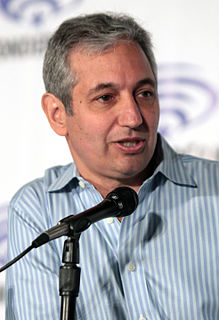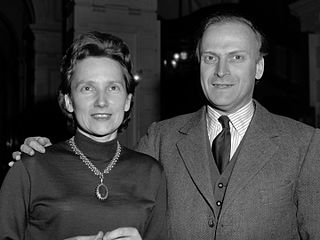A Quote by Nani
I always think of myself as an audience first. If I like something, my assumption is that others, too, will like it.
Related Quotes
I think you have to do the stories that interest you and hope an audience likes it, rather than doing stories that you think the audience will like, whether you like them or not. I think there has to be something that you find compelling and interesting, and then hopefully an audience will agree with you.
I never like to play for myself, and that is why I don't own a grand piano. To play for yourself is like looking at yourself in a mirror. I like to practice; that is to work at a task. But to play there must be an audience. New things happen when you play for an audience. You don't know what will occur. You make discoveries with the music, and it is always the first time. It is an exchange, a communion.
What I react against in other people's work, as a filmgoer, is when I see something in a movie that I feel is supposed to make me feel emotional, but I don't believe the filmmaker shares that emotion. They just think the audience will. And I think you can feel that separation. So any time I find myself writing something that I don't really respond to, but I'm telling myself, 'Oh yes, but the audience is going to like this,' then I know I'm on the wrong track and I just throw it out.
Learning to love others begins with learning to love ourselves unconditionally first. I will never let myself down, treat myself like a doormat, or make myself small so others can feel big. I have learned that this is the biggest gift that I give not only to myself, but also to the planet, because I paint others with the same brush as I use on myself.
He never hurries. He never shows his cards. He always hangs up first....Like when we first started talking on the phone, he would always be the one who got off first. When we kissed, he always pulled away first. He always kept me just on the edge of crazy. Feeling like I wanted him too much, which just made me want him more....[It was] excruciating and wonderful. It feels good to want something that bad. I thought about him the way you think about dinner when you haven't eaten for a day and a half. Like you'd sell your soul for it.
You always have to appeal to your audience. You always have to consider how well your project will do in terms of admissions. I abandoned many stories because of that. But I don't get too down about it. It's something I accepted from the time I decided to work in films. I could always do something else if I got sick of it, like draw manga, or make my own films. I found it pointless sitting in my house not working, though I'd like to go on extended vacations from time to time.
I so think it's limiting to define an audience ahead of time. This is something I've brought on myself by being like, 'There are no 'real' teen publications! That's what I'll do!' But then it's like, well, if I want 'Rookie' to be successful and popular, then people will invalidate the realness by saying it's popular and mainstream.
Seeing ourselves as we want to be is a key to personal growth. To successfully bring about change in our lives we need to implement a system of change that is build upon three assumptions. First Assumption: We change our lives by changing the attitudes of our minds. Second Assumption: We become what we think about all day long. Third Assumption: Our mind is naturally goal seeking. Please remember these assumptions. Our mind is always trying to accomplish something. We have a powerful machine wanting to achieve goals. It will set the goals that we allow it to.
The concern about what's too violent or what's too scary is something that I just completely don't let enter into my creative process. I feel like, if I spend a lot of time trying to worry about whether it will appeal to everyone and who will like it and who won't, and I try to please everyone, I'll just spread myself too thin and lose my mind.





































